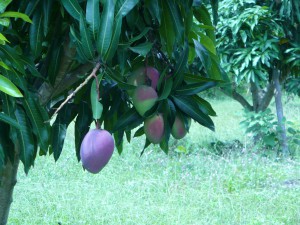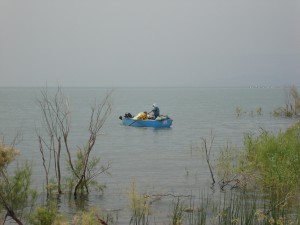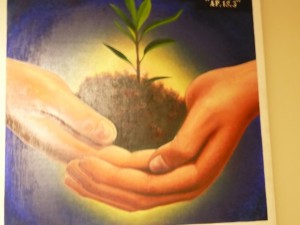A comme ntary on Mark 4, 26-34, Eleventh Sunday, Ordinary Time, June 14th
ntary on Mark 4, 26-34, Eleventh Sunday, Ordinary Time, June 14th
We have already left behind the Paschal Liturgical time (Lent, Passover, and Pentecost) and the solemnities of the Holy Trinity and the Body of Christ. We are now again in the Ordinary time reassuming the reading of Mark. This Eleventh Sunday we read a few verses from Mark’s chapter four. As a matter of fact, I invite you to read the whole chapter so that you can have a better idea of Jesus’ message for today. From that reading, I share with you two reflections:
 1) A crowd near the lake of Galilee
1) A crowd near the lake of Galilee
As you know, Jesus stablished his operational centre at Capharnaum, a small town by the side of Lake Galilee. His presence in that town and surroundings caused a great impact and people rushed in hundreds to get near him and listen to him, because his words were so especially clear, simple, and relevant that their hearts were “burning”. Jesus, farmer among farmers, fisher among fishers, worker among workers, felt quite at easy with that simple people, exposed to the sufferings and hardships of life, hungry for truth and sense, who found no answers in rigid and sclerotic traditions little related to real life. On the contrary, from an affective nearness to their worries an everyday fights and from his contemplative experience in the desert, Jesus was able to express himself in touching parabolic narrations, explaining the mystery of God and his kingdom in a language related to every day’s life in the fields, de fishing ports and the ordinary life.
The gospel of Jesus is made to be understood and preached from the every one’s ordinary life. Or spiritual life must be measured, not so much by the fine words we can say, but by or concrete life and actions.
And all those of us who have a responsibility in passing on to others the Gospel of Jesus (parents, teachers, catechists, priests…) have to look at this Teacher who is able to explain the presence of God in a language related to the concrete life of people.
 2) Seed does not need to be pulled up
2) Seed does not need to be pulled up
Forgive me this obvious reflection, but I think that it can help us to grasp Jesus’ message in today’s gospel:
Discúlpenme esta obviedad, pero me parece que sirve para entender bien lo que nos dice Jesús en el evangelio de hoy: “seed would sprout and grow…. On its accord the land will yield fruit”. Jesus tells us that the Kingdom of God is like a seed that God sows in our heart, our community, our family… and it grows of itself, as far as it’s welcomed in a well-kept land. For the wheat to produce fruit it does not help that somebody goes and pulls it up; it’s of not use to try hard and pull it up. No. Wheat must grow by itself, from its inner energy that God has planted in it.
Don’t you think that quite often some parents look like they try to force their children to grow from outside and impose on them fruits that God has not meant for them? Don’t you think that sometimes in our communities or families we try to force people to be what they are not? Do no happen to ourselves that we try to force ourselves to appear before others as powerful and immaculate, with the result that we become bitter, hypercritical, and negative?
I think that Jesus, with this parable of the seed that grows of itself is inviting us, not to be lazy or passive, but serene and trustful; He wants his disciple to trust the Truth and Love, the kingdom that the Father has sown on all o sous, in our communities and families. What we have to do is to cultivate our piece of land, freeing it from stones and rubbish. All the rest will be done in us by the Spirit.
Fr. Antonio Villarino
Rome



